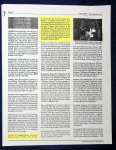
United Nations World Conferences - Revisited
Background
The World Conferences-Revisited is a program established by the International Center for Environmental Arts (ICEA) after the World Conference in Vienna and is promoting the follow-up theme of Universitality from an independent perspective.
The establishment of the ICEA, a non-governmental organization, responds to the need for an informed, authoritative, historical voice to identify, analyze and report on critical human, cultural and environmental issues on the basis of evidence provided by the scientific community and the insights and testimony of people directly concerned.
It seeks to particularly to amplify the voices of those at the local grassroots level who are not sufficiently heard or heeded in policy and decision making in respect of these issues. It does this by providing a display of the artifacts of the UNITED NATIONS WORLD CONFERENCES as a forum for holding public hearings, debates, and other activities designed to promote greater awareness, education and action, cooperating rather than competing with existing organizations and supporting the purposes and program of the United Nations through the Theory of Iceality on Environmental Arts. .
PHILOSOPHY
People throughout the world will need to shape the world’s response to the UNITED NATIONS call for Universitality. The extent to which the nations of the Earth implement this calling will largely depend upon the success of individuals and groups in persuading society as a whole of the importance of the universitality theme. There is a need for a voice that both responds to and amplifies the views of people, particularly of grassroots networks and individuals, and expresses local concerns and aspirations, yet is global, articulating and insisting upon an ethic of moral issues rather than political issues. Such an organization must unite and reinforce the work of concerned bodies and groups through an open and active process that meets the needs of the global community. This is the philosophy behind the UNITED NATIONS WORLD CONFERENCES EXHIBITS at ICEA.
PROGRAM ELEMENTS
In 1993, Article XI of the U.S. Draft Human Rights Action Plan from the U.S. Department of State says in part "The 1998 UN General Assembly should assess progress made in realizing the principles set forth in the Final Document of the World Conference on Human Rights, as well as its program of human rights action."
During the 1993 United Nations Conference on Human Rights held in Vienna, Austria, the UN asked the member Nations how the information generated at the UN Conferences could get down to the people where it would do the most good. Renate and David Jakupca from ICEA, Official UN Observers to the Conference, suggested the information be sent on tour after the Conference closes. With the approval of US Delegates Geraldine Ferraro and Jimmy Carter, ICEA starting promoting iceality of 'recycling' all major UN conferences until 2007.
International environmental and human right activists, David and Renate Jakupca, working with the approval of several committed people including former President Jimmy Carter and Ms. Geraldine Ferraro, Team Leaders of the U.S. Delegation to the World Conference on Human Rights (1993 Vienna, Austria), have initiated a plan to implement Article XI.
As the World Conferences-Revisited displays travels throughout the world, it was open to proposals from citizen groups and will listen to and amplify, especially the voices of those normally excluded from international and national deliberations. In all this, it will seek the role of a catalyst to put words into action.
The Theory of Iceality on Environemtal Arts was enthusiastically embraced by the United Nations by 1990 and was featured in many of World Conferences;
1- 1992 Earth Summit on the Environment, Rio de Janeiro, Brazil
2- 1993 World Conference on Human Rights, Vienna, Austria
3- 1994 World Conference on Population and Development, Cairo, Egypt
4- 1995 World Conference on Women, Beijing, China
5- 1996 Habitat II- UN Conference on Human Settlements, Istanbul, Turkey
6- 2000 World's Fair, Expo2000, Hannover, Germany
7- 2001 World Conference on Racism, Durban, South Africa
8- 2002 World Summit on Sustainability, Johannesburg, South Africa
9- 2003 World Conference on Peace, Verbania, Italy
10- 2005 World Conference on Peace, Verbania, Italy
11- 2007 World Peace Conference, Santa Fe, New Mexico
The result of this major global public promotion at the United Nations level, is that the Theory of Iceality on Environmental Arts is now considered as the cornerstone of the modern sustainable global Environmental Art Movement and this concept is now replicated by urban designers, architects and artists throughout the World.
1. Review and Assessment
A major activity will involve assembling and evaluating possible indicators of developmental performance. The process must involve professional assessments coupled with peer reviews and opportunities for comment by those involved in the assessment and a public evaluation procedure of the UN’s effectiveness in the field of human rights.
2. Sustainable Development Agenda
The further development and implementation of Sustainable Development as initiated in the 1992 Earth Summit will be supported. The process of consultation is to identify the issues and key actors in environmental issues in 1992 and 2002.
3. Human Rights Forum
The World Conferences-Revisited will design and convene forums that will allow public reviews and intersectional dialogues at global, regional and local levels. These will permit the connection of local realities to global priorities. A statement of values for with general acceptance will be articulated and promoted, building on the range of existing Human Rights Charters and Declarations.
4. Environmental Arts
Art is a creative tool to attain peace and sustainable development. By developing the possibilities of creative synergy, contemporary artists moving along bioregional ancestral roots to new routes of expression can envision human and ecological security for the 21st Century. It is ICEA’s appeal that we should harness and mobilize the wealth of basic cultural values and artistic and media resources as a creative force to stop destruction against mankind and mother earth.
PROGRAM DEVELOPMENT
A display of the collection of documents and artifacts produced in connection with the World Conferences-Revisited will constitute the initial basis of the program. However, to effective, the World Conference-Revisited must respond with a sense of urgency to the new challenges arising from the rapid changes in global society, and the developments in understanding and approach which are likely to occur. It will be concerned with focusing on the promotion of environmental and human rights issues at all levels, particularly by empowering people and their organizations to facilitate and maintain practices locally.
Specific decisions on the program content of the World Conferences-Revisited will require further reflection and extensive consultation with a multiplicity of actors. Choices will also depend upon the availability of financial resources.
There are, however, two fundamental program principles which will guide the specific choices to be made in the future. These are:
a. It should have an Ombudsman role, bringing substance and the greatest possible objectivity to assessing and reporting publicly on the adequacy of the responses to the challenges of the World Conference.
b. The program should continue the momentum of universitality by encouraging peoples participation in their own development and in the global decision making processes. The program will seek to address civil society, as well as governments and business. Its focus will be to influence and catalyze change, to address neglected areas of concern and to empower people to promote a self-management approach to problems.
MODES OF OPERATION
In all of its activities, the World Conferences-Revisited Program will:
a. Foster collaborative effort among a wide range of organizations that reflect diversity of interest, culture and approach to human rights and environmental issues.
b. Facilitate effective communication and public awareness strategies.
c. Develop information systems that underpin the operation of the World Conferences-Revisited Program and make these available by provision to interested parties.
d. Develop new, additional and innovative resources and sources of funding to support the work of the Program.
e. Mobilize funds to support grass-roots and people based initiatives with the collaboration of other organizations.
The World Conferences-Revisited will, in all its work, endeavor to speak out clearly in favor of local, regional and global long-term interests that allow basic problems to be addressed. It will seek always in its work, to promote the interests of the poor, underprivileged and disenfranchised, and show to future generations culture is an essential ingredient for sustainable development.
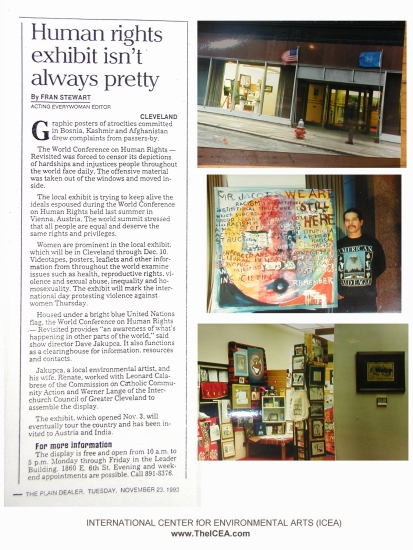
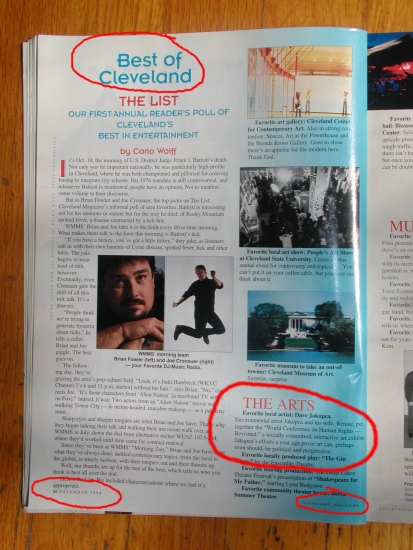
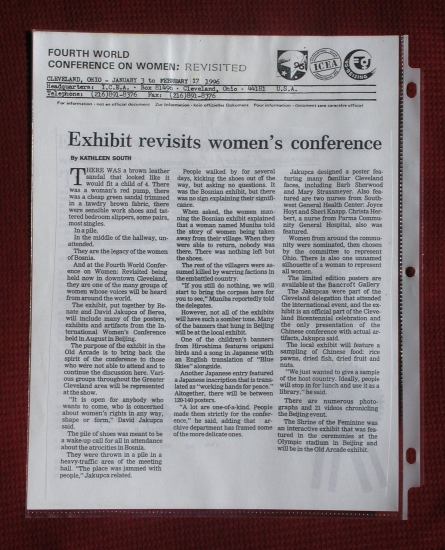

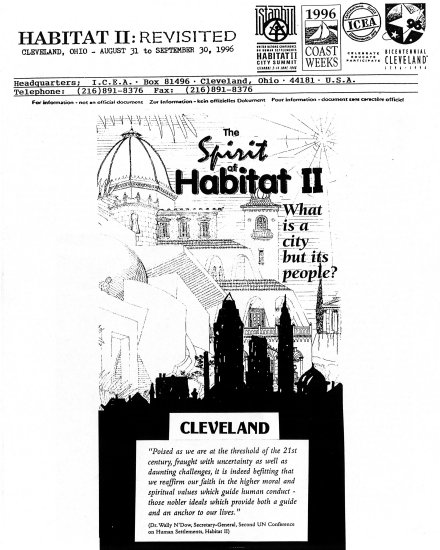
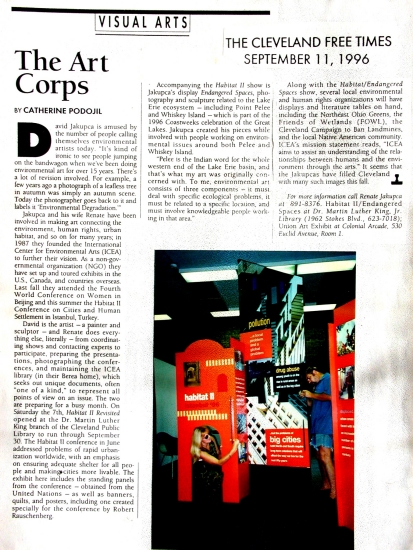
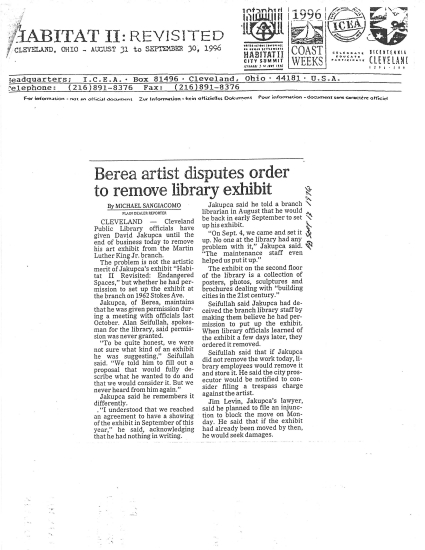

In an hostile takeover attempt of ICEA, the HABITAT II - Revisited Exhibit was illegally cancelled by the Non-Profit Syndicate operating in Cleveland. It was set up and opened for a private showing but never opened to the public. Shysters and charlatans masquerading as legitimate business and civic leaders convinced the Cleveland Public Library to close it down immediately, hoping to bankrupt and close ICEA for good. The International Community Council was formed to replace ICEA. Fortunately, others in the community stepped forward and that did not happen. The exhibition was taken apart and set up in various locations around the city and what could not be used was sent to ahead to South Africa, the exhibitions next destination. A detailed account can be found in the ‘The Internecine Matrix’. In acknowledging the treacherous attack on a United Nations Exhibition in Cleveland, in Montreal Canada, the 1999 International Helen Prize Humanitarian Award Committee conferred on Ambassador Renate Jakupca the HELEN PRIZE as international award celebrating the accomplishments of women from around the world who have made heroic but unrecognized contributions to their communities.
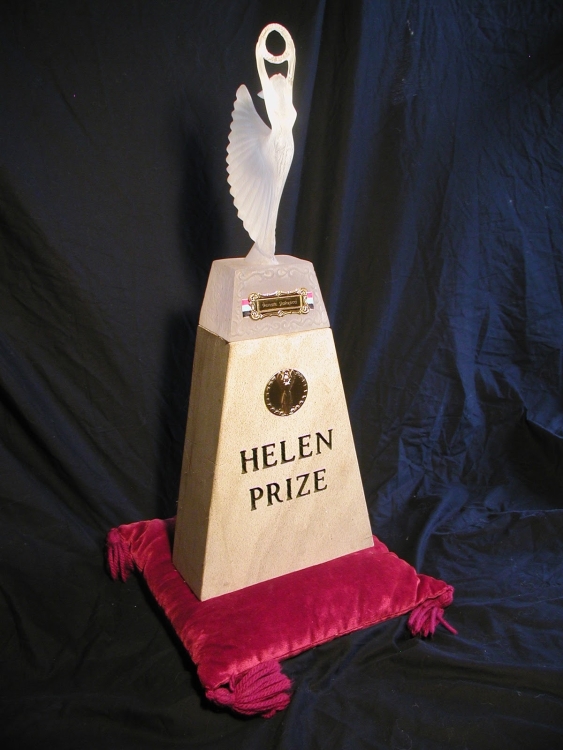
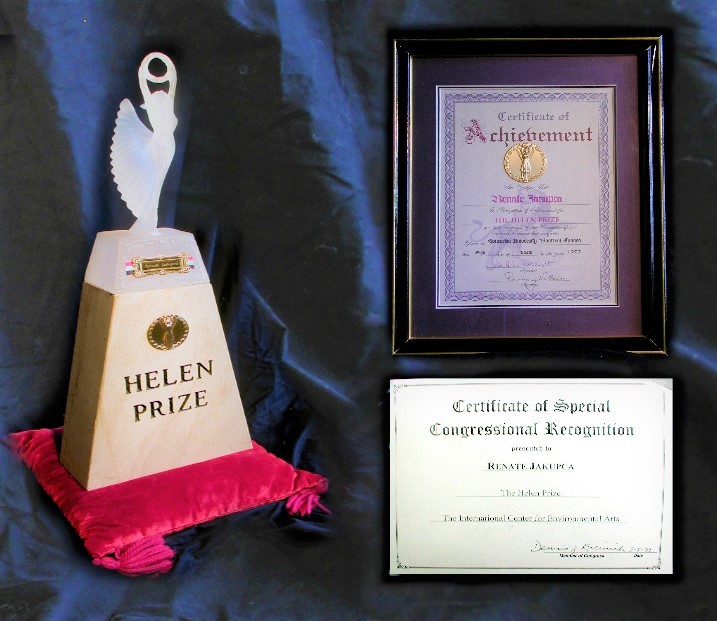
Consequently, all further World Conferences were recycled:
- 2000 World's Fair, Expo2000, Hannover, Germany
- 2001 World Conference on Racism, Durban, South Africa
- 2002 World Summit on Sustainability, Johannesburg, South Africa
- 2003 World Conference on Peace, Verbania, Italy
- 2005 World Conference on Peace, Verbania, Italy
- 2007 World Peace Conference, Santa Fe, New Mexico
but were sent directly to the ICEA 10,000ft Warehouse in Middleburg Heights for processing. They were only seen in Cleveland by appointment only.
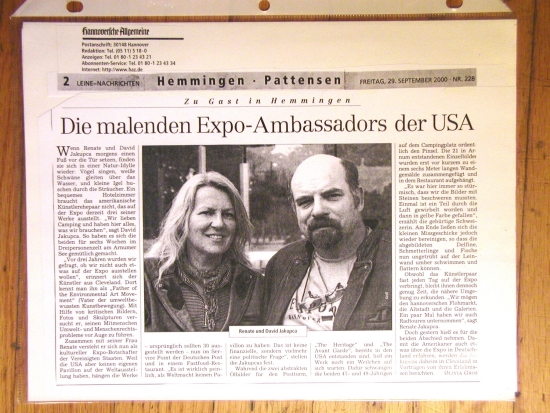
American Cultural Ambassadors David and Renate Jakupca along with Arnold Palmer were appointed Official Ambassadors from the United States to Expo 2000, the Worlds Fair held in Hanover, Germany.
https://www.golfmagic.com/news/golf-news/arnold-palmer-supports-the-let/421
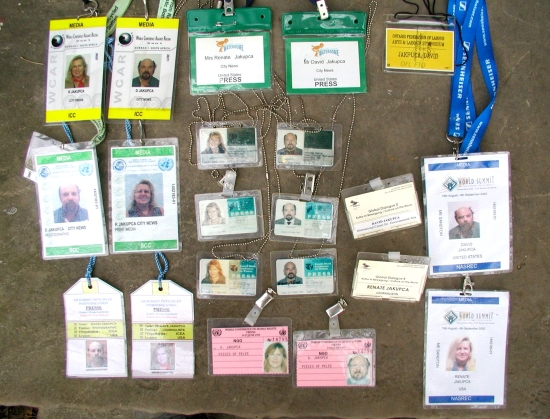
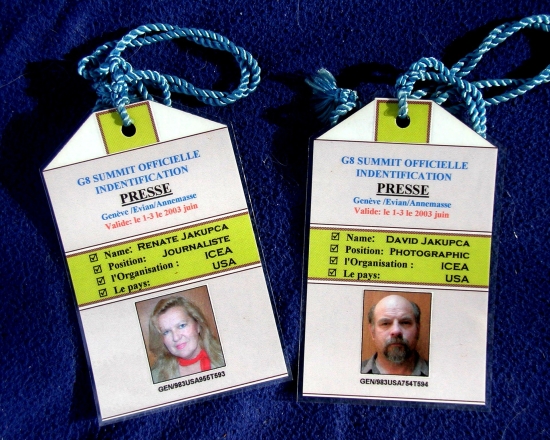
![]()
The United Nations World Conferences - Revisited Program was discontinued in 2007 when the UN canceled the World Conferences Project due to financial and security problems. By 2009 all exhibits pertaining to the UN World Conferences were processed and returned, with the exception of the 'Worlds Children Peace Monument (WCPM) from EXPO 2000 because it was a gift to the people of Cleveland, Ohio as a Symbol of Universal Peace. ICEA's 10,000 gallery and warehouse in Middleburg Heights was then closed.
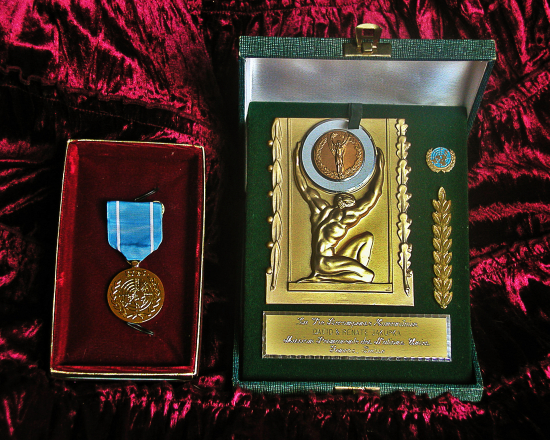
UN SERVICE AWARD and MEDAL presented to David and Renate Jakupca of the ICEA
| © 1992 ICEA | International Center For Environmental Arts (ICEA) Box 81496 Cleveland, Ohio 44181 Tel / Fax 440-891-8376 Email: icea2000@sbcglobal.net |



